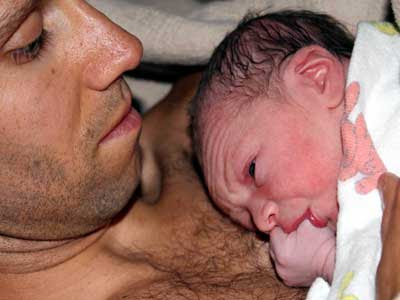Much has been written about what happens to mothers hormonally during pregnancy and after, but what about dads?
Read More
Much has been written about what happens to mothers hormonally during pregnancy and after, but what about dads?
Read More
In an era of fact-checking and alternative facts, many people simply choose not to believe research findings and other established facts.
Read More
In an era of fact-checking and alternative facts, many people simply choose not to believe research findings and other established facts.
Read More
New research from the University of Chicago Booth School of Business finds that when it comes to predicting who is most likely to act in a trustworthy manner, one of the most important factors is the anticipation of guilt.
Read More
When they must act quickly, selfish people are likely to act more selfishly than usual, while pro-social people behave even more pro-socially, a new study found.
Read More
It is common knowledge that practicing gratitude is a healthy habit. But when it comes to writing letters of thanks to people who have made a difference in your life, the excuses pile up quickly.
Read More